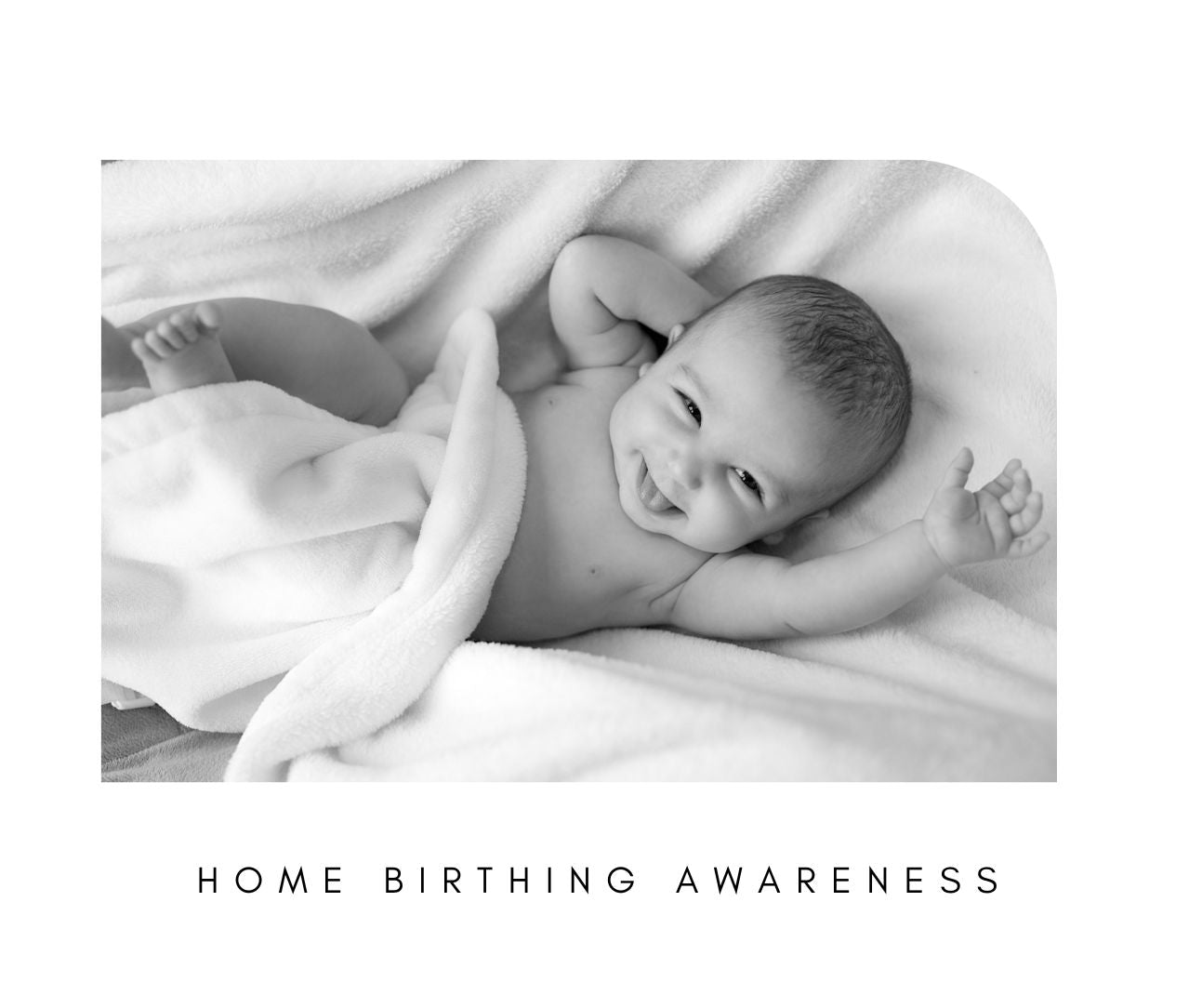Tender Love and Care for Newborn Skin

Newborn Skincare
Becoming a parent is an incredible adventure. Amidst the joy and excitement, it's natural to have questions about how best to care for your newborn, especially when it comes to their delicate skin. You might be wondering about everything from bathing routines to how to keep their skin hydrated. This blog post will help you understand the importance of skin hydration for your newborn, offering practical tips and insights to ensure your baby's skin remains soft, healthy, and protected.
Understanding Newborn Skin
Newborn skin is incredibly soft and sensitive, much more so than adult skin. It’s thinner, has less natural oil, and is more prone to dryness and irritation. This makes it essential to provide adequate hydration and gentle care to maintain its health.
Why Newborn Skin is Different
Newborn skin is still adjusting to the environment outside the womb. In utero, the baby was surrounded by amniotic fluid, which kept their skin moist and protected. Once born, their skin is exposed to air and other external factors, requiring different care to stay healthy.
The Role of Vernix Caseosa
You might notice a white, greasy substance on your newborn’s skin at birth. This is called vernix caseosa, a natural moisturizer that protects the baby’s skin in the womb. It acts as a barrier against amniotic fluid and helps prevent water loss after birth.
Common Skin Conditions in Newborns
Newborns can experience various skin conditions like dryness, cradle cap, and diaper rash. These conditions can often be managed with proper hydration and skincare routines, minimizing discomfort and promoting faster healing.
The Importance of Skin Hydration
Keeping your newborn's skin hydrated is crucial for several reasons. It helps maintain the skin's natural barrier, prevents irritation, and promotes overall skin health.
Maintaining the Skin Barrier
The skin barrier is the outermost layer of the skin, responsible for protecting against irritants and preventing moisture loss. Hydrated skin is better equipped to function as an effective barrier, keeping your baby’s skin healthy and resilient.
Preventing Skin Irritation
Dry skin is more prone to irritation and inflammation. By ensuring your baby’s skin stays hydrated, you can reduce the likelihood of conditions like eczema and dermatitis, which can cause discomfort and itchiness.
Promoting Overall Skin Health
Hydrated skin is healthy skin. Regular moisturizing helps maintain the skin’s elasticity and smoothness, preventing cracks and ensuring it remains soft and supple.
Choosing the Right Products
When it comes to newborn skincare, choosing the right products is essential. Opt for those specifically formulated for babies, free from harsh chemicals and fragrances.
Gentle Cleansers
Use mild, fragrance-free cleansers designed for newborns. Avoid products with alcohol or strong chemicals that can strip natural oils and cause dryness.
Moisturizers
Look for hypoallergenic moisturizers that are gentle on your baby’s skin. Ingredients like shea butter, glycerine, and jojoba oil are excellent for keeping skin soft and hydrated.
Bathing Practices
Limit baths to three times a week with lukewarm water. Bathing too often can strip the skin of its natural oils, leading to dryness and irritation. Pat the skin dry gently with a soft towel, and apply moisturizer immediately after to lock in moisture.
Practical Tips for Daily Skin Care
Caring for your newborn’s skin doesn’t have to be complicated. With a few simple daily practices, you can ensure their skin remains healthy and hydrated.
Establish a Routine
Consistency is key. Create a daily skincare routine that includes gentle cleansing and moisturizing. Over time, this will help maintain the skin’s natural balance and prevent dryness.
Monitor Environmental Factors
Environmental factors like temperature and humidity can affect your baby's skin. Keep the nursery's temperature comfortable, and use a humidifier if the air is dry to maintain optimal skin hydration.
Dress Appropriately
Choose soft, breathable fabrics for your baby’s clothing to avoid irritation. Cotton is an excellent choice as it allows the skin to breathe and prevents overheating.
Addressing Common Skin Concerns
Even with the best care, newborns can still experience common skin concerns. Knowing how to address them can make all the difference.
Diaper Rash
Diaper rash is common but can be prevented with proper care. Change diapers frequently, use a barrier cream, and ensure the skin is dry before putting on a new diaper.
Cradle Cap
Cradle cap appears as scaly patches on the baby’s scalp. Gently massage the scalp with a mild baby shampoo and a soft brush to remove flakes.
Eczema
If your baby develops eczema, consult your paediatrician for appropriate treatment. Keeping the skin moisturized and avoiding irritants can help manage this condition.
When to Seek Medical Advice
While most skin conditions in newborns are harmless and temporary, some may require medical attention.
Persistent Dryness
If your baby’s skin remains excessively dry despite regular moisturizing, consult your paediatrician. This could indicate an underlying condition that needs attention.
Severe Irritation
Severe skin irritation, redness, or swelling should be evaluated by a healthcare professional to rule out infections or allergic reactions.
Unusual Rashes
Unusual rashes or blisters that do not improve with basic care should be assessed by a doctor to ensure proper diagnosis and treatment.
The Role of Nutrition in Skin Health
Your baby’s diet also plays a crucial role in maintaining healthy skin. Ensure they receive proper nutrition through breast milk or formula, providing essential nutrients for overall health.
Breastfeeding Benefits
Breast milk contains antibodies and nutrients that support your baby’s immune system and skin health. It can help protect against infections and promote healing.
Formula Feeding
If breastfeeding isn’t an option, choose a high-quality formula that provides similar nutrients. Consult your paediatrician for recommendations that best suit your baby’s needs.
Hydration
Ensure your baby stays hydrated by feeding them regularly. Adequate hydration is vital for maintaining skin moisture levels and overall health.
Building a Long-Term Skincare Routine
As your baby grows, their skincare needs will evolve. Establishing a solid foundation now will create healthy habits for the future.
Adapting to Changes
Your baby’s skin will change as they grow. Stay attentive to these changes and adjust their skincare routine accordingly, ensuring it remains effective and gentle.
Educating Your Child
Teach your child the importance of skincare as they get older. Encourage them to participate in their daily routine, fostering a sense of responsibility and self-care.
Consulting Experts
Regular check-ups with your paediatrician can help monitor your baby’s skin health. Don’t hesitate to seek advice if you notice any changes or have concerns.
Wrapping things up
Caring for your newborn's skin is an essential part of parenting. With the right knowledge and practices, you can ensure your baby's skin remains healthy, hydrated, and protected. Remember to choose gentle products, establish a consistent routine, and address any concerns promptly. By doing so, you’ll be supporting your baby’s overall health and well-being. If you need personalized advice, don’t hesitate to consult with a paediatrician or skincare expert. Happy parenting!
~ jinki.com




